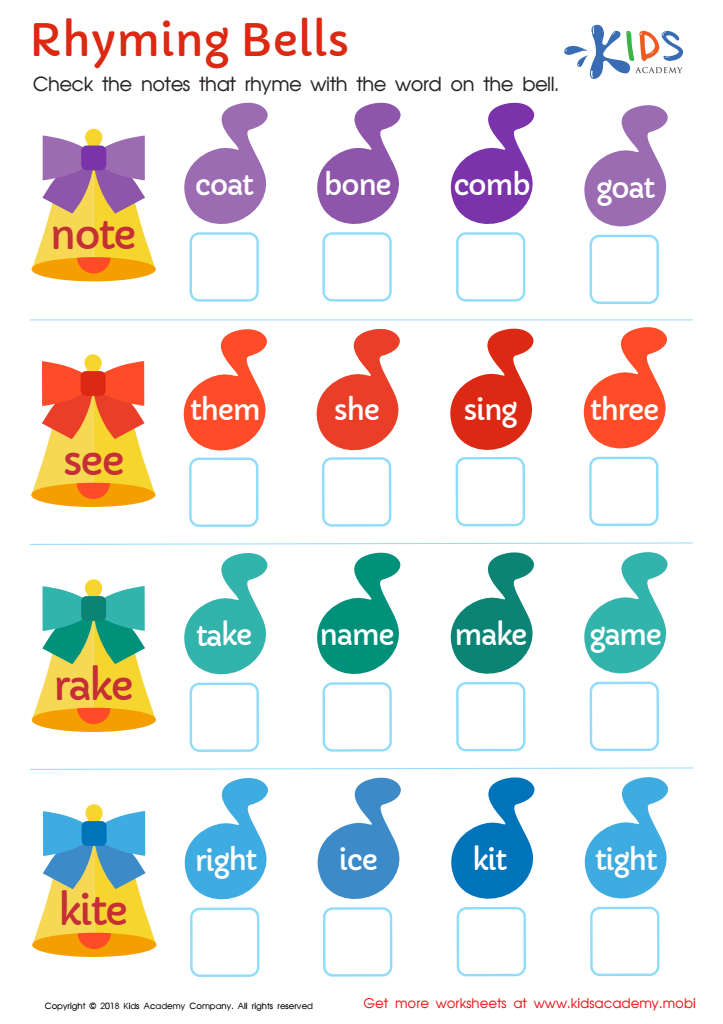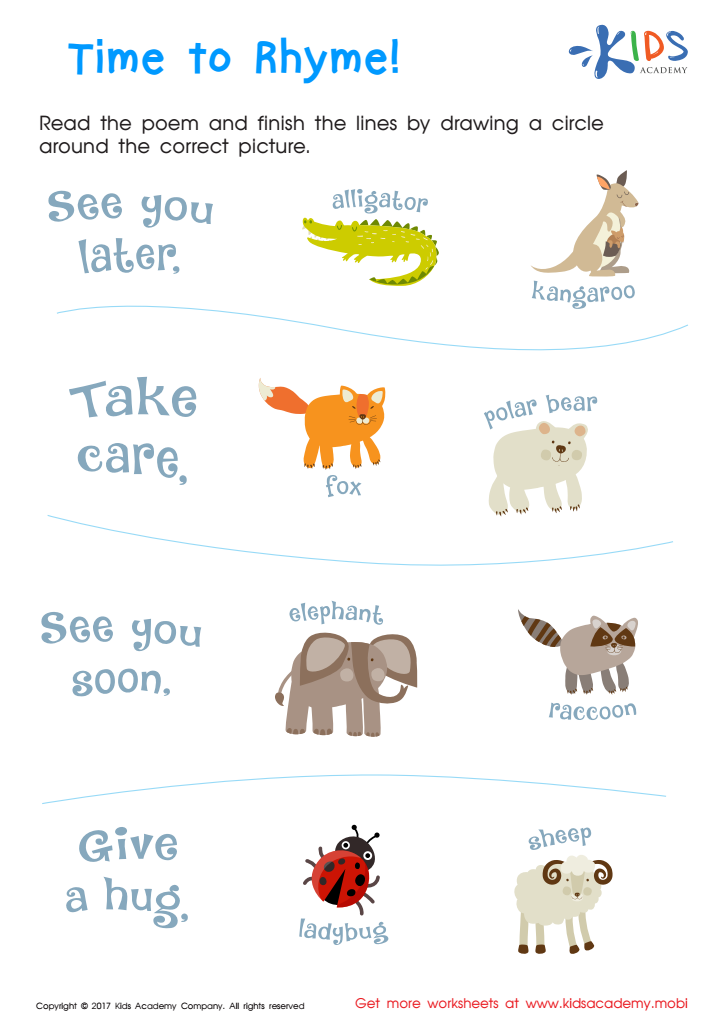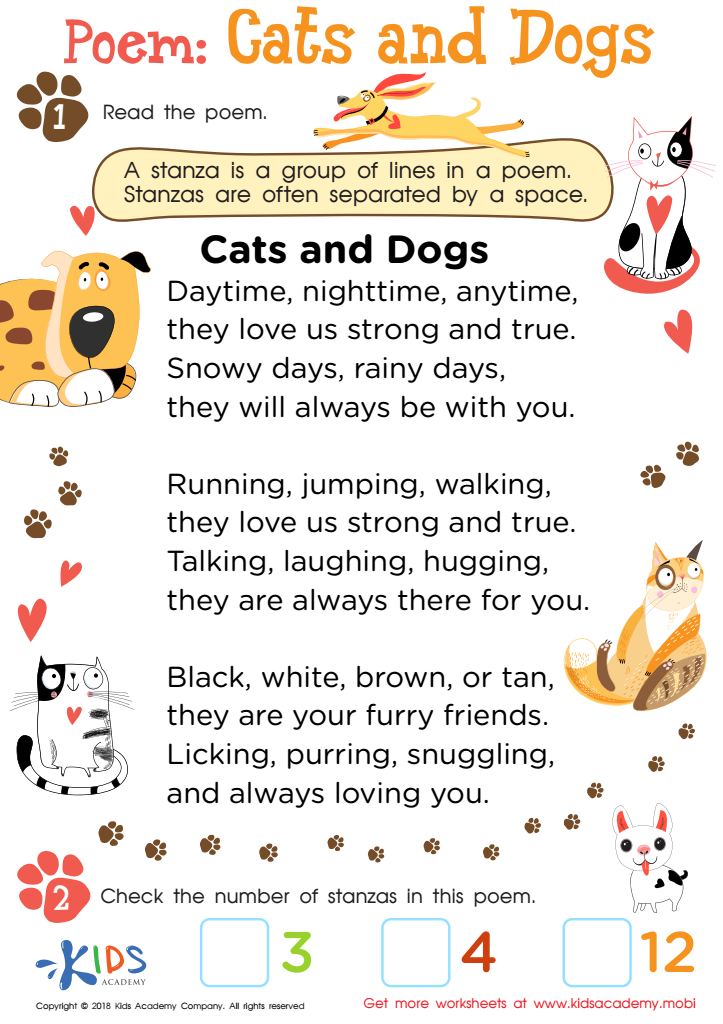Reading comprehension Normal Rhyming Worksheets
7 filtered results
-
From - To
Enhance your child's reading skills with our engaging "Reading Comprehension Normal Rhyming Worksheets." These expertly designed worksheets introduce young learners to the joy of rhyming, fostering vital reading comprehension abilities. Each activity combines fun rhyming exercises with comprehension questions tailored to build vocabulary and phonemic awareness. Ideal for early grade students, these printable worksheets support independent and classroom learning. Boost your child's confidence and proficiency in reading as they uncover rhyming patterns, understand story context, and develop critical thinking. Explore our selection today to create a strong foundation for lifelong reading success!


Rhyming Words: Assessment Worksheet


Rhymes in Poems Worksheet


Rhyming Words Rhyming Worksheet


Rhyming Bells Worksheet


First Words: Picture Rhymes Worksheet


Time to Rhyme Rhyming Worksheet


Poem: Cats and Dogs Worksheet
Reading comprehension is crucial in early childhood education because it lays the foundation for successful academic and life-long learning. Rhyming, an aspect of phonemic awareness, plays a key role in this process. When children engage with rhyming words, they are not just enjoying catchy patterns, but they are also developing essential skills for reading comprehension.
Rhyming helps children recognize sound patterns and understand the relationship between sounds and the meaning of words. This phonemic awareness is a critical component of decoding, which allows children to read fluently. As they become more proficient in recognizing rhymes, they can predict and infer what comes next, thereby enhancing their comprehension skills.
Understanding rhyming words requires children to listen carefully and think about how words are structured and connected, which promotes cognitive skills such as memory, attention, and sequencing. These skills are transferable and support comprehension across various subjects.
For parents and teachers, focusing on rhyming can also make reading sessions more engaging and enjoyable. Fun with rhymes encourages a love of reading, making children more likely to spend time practicing their skills. Therefore, emphasizing the importance of rhyming helps in building a robust foundation for reading comprehension, nurturing more confident and proficient young readers.
 Assign to My Students
Assign to My Students


















